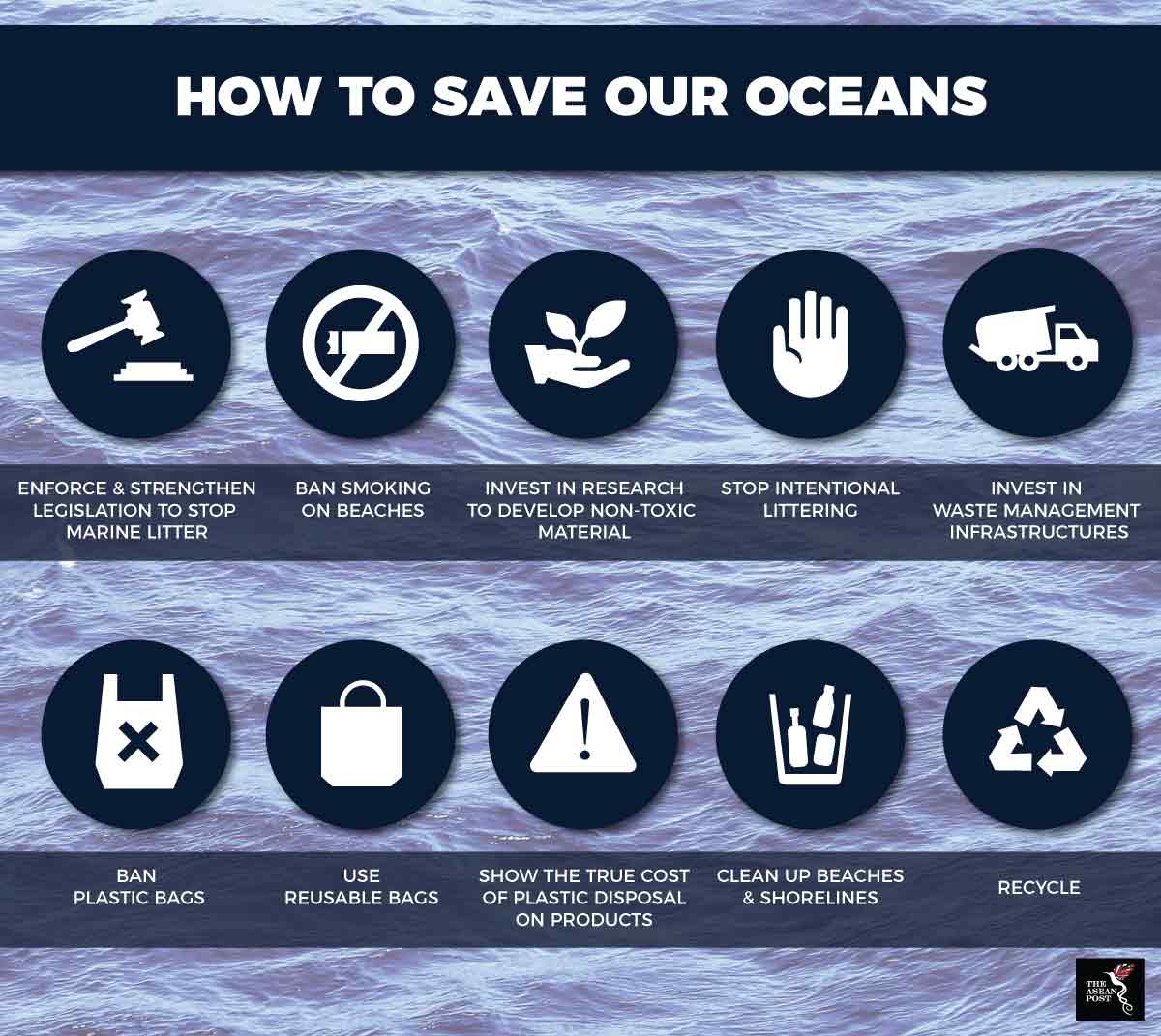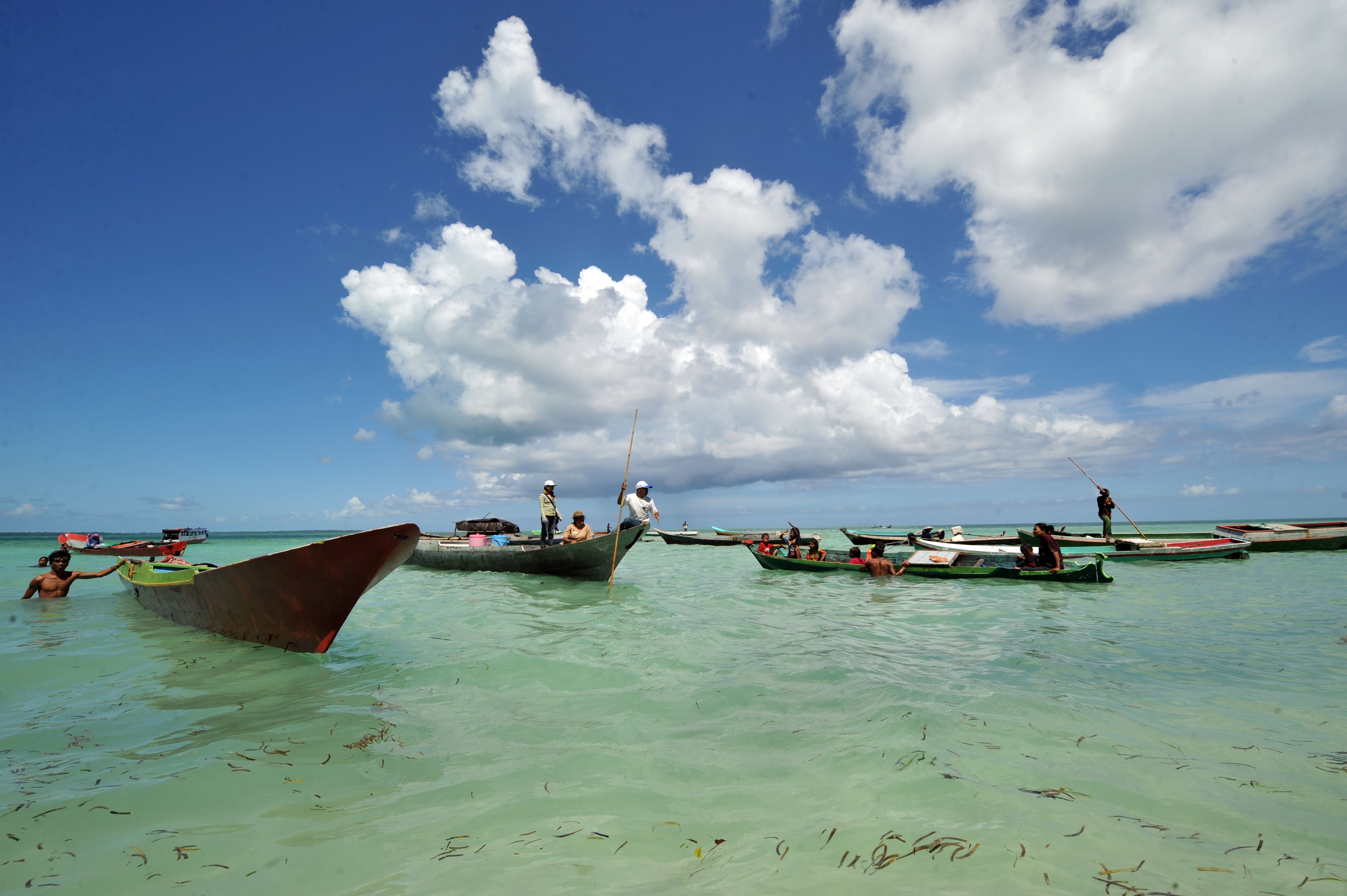Oceans play an essential role for life on earth by generating most of the oxygen we breathe, providing us with food, regulating our climate, cleaning the water we drink and delivering a variety of valuable ingredients for medicinal uses.
However, humans are continuously threatening the oceans by carrying out destructive fishing practices, overfishing, creating pollution which in turn leads to coral bleaching and other impacts from climate change.
ASEAN has a total of 173,000 kilometres of shorelines, and overall, the region hosts a third of the world’s coastal and marine habitats, providing many resources that are important to the livelihoods of coastal communities.
Indonesia and the Philippines are two countries that have millions of coastal people living within 30 kilometres of reefs, and according to the ASEAN Population Reference Bureau, close to 500 million people will be living in or near coastal and marine areas in ASEAN by 2050; putting the region’s oceans under increased stress.
“Considering that the region is one of the fastest growing economies in the world, its nearshore ecosystems have become more vulnerable to habitat change from overexploitation, sedimentation, pollution, coastal development, ineffective governance, and collateral damage from coastal tourism and climate change,” said Dr Theresa Mundita S. Lim, Executive Director, ASEAN Centre for Biodiversity in a press release to commemorate World Oceans Day today.
Proposed at the Earth Summit in Rio de Janeiro in 1992, the United Nations (UN) General Assembly passed a resolution in December 2008 to officially recognise 8 June as World Oceans Day each year – and it is now seen as an opportunity to celebrate the world’s oceans and our personal connection to the seas.
Pollution getting worse
It is this personal connection to the seas, or the lack of it, which has led to rising pollution levels – with mind boggling numbers regularly being used to describe the global environmental catastrophe caused by decades of overuse and a surge in single-use plastics.
Human activities present the biggest threat to oceans as more than 80 percent of marine pollution comes from land-based activities and waste, specifically plastics.
An estimated eight million tonnes of plastic reach our oceans every year, where a total of 150 million tonnes of plastic waste has already accumulated over the years.
While most plastics are expected to remain intact for decades or centuries after use, those that do erode end up as micro-plastics, consumed by fish and other marine wildlife, quickly making their way into the global food chain.
90 percent of the world’s seabirds have ingested plastic, and by 2050, there will be more plastic than fish in the world’s oceans.
Illegal, unreported and unregulated (IUU) fishing has also had a severe impact on oceans, with the European Union (EU) estimating that between 11 and 26 million tonnes of fish are caught illegally a year, accounting for at least 15 percent of the world’s catches worth up to US$22 billion per year.

What is being done?
During the Special ASEAN Ministerial Meeting on Marine Debris held on 5 March in Bangkok, the ministers responsible for natural resources, environment and marine affairs affirmed ASEAN’s commitment to conserve the region’s marine environment and strengthen regional cooperation in addressing marine debris issues.
The ASEAN Centre for Biodiversity noted that the ministers also used the meeting to extend their full support to advance partnerships for sustainability as well as to promote synergy within the framework of ASEAN partnership, in particular to combat marine debris in the ASEAN region.
There is a lot that we, as citizens of ASEAN can do at the ground level to preserve our oceans – first of all, by taking time today to think about what our oceans really mean to us. Learning about the wealth of diverse and beautiful ocean creatures and habitats, how our daily actions affect them, and how we are all inter-connected is another step which can be taken to raise more awareness of our oceans – as is a greater understanding of our carbon footprint and the need to reduce energy use.
Properly disposing waste and using fewer plastics or reusable ones – and disposing them properly – will also go a long way in reducing the flow of plastics into our oceans.
Buying sustainably sourced seafood, reporting illegal activities that are harmful to marine life and joining coastal clean-up activities are other ways we can ensure the continued good health of our oceans for generations to come.
Related articles:
ASEAN’s shrinking biodiversity
